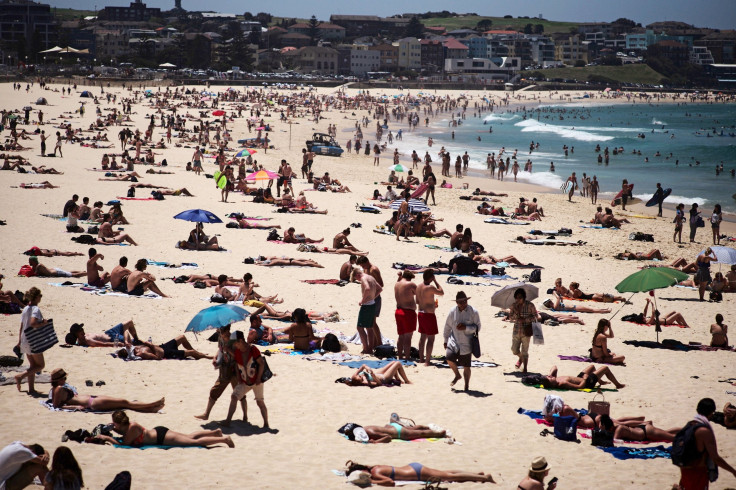NSW, Queensland to experience 3-day heatwave, temperatures to cross 40 degrees Celsius

Australia’s east coast is experiencing a scorching heatwave that is expected to last three days. Residents in affected areas have been urged to stay cool.
Extremely hot conditions are expected to persist in parts of southeast Queensland and northeast New South Wales. An extreme heatwave warning has been issued for town of Gympie, Queensland.
On Tuesday, mercury levels will likely jump to staggeringly high levels. Sydney’s west will record a temperature of 41 degrees Celsius in the afternoon. Melbourne, where the Australian Open is taking place, will experience 35 degrees Celsius. Brisbane is expected to suffer high temperatures of 34 to 35 degrees Celsius through the next week. Adelaide will likely experience 39 degrees Celsius later in the day before Wednesday brings relatively cooler temperatures.
Speaking with AAP (via News.com.au), Bureau of Meteorology spokesman James Taylor said, "That hot air mass will just lurk there and gradually slide eastwards and that's why northeast South Australia, northern NSW and southern Queensland will be experiencing heatwave conditions again later this week.”
Total fire bans were placed in effect for much of South Australia as a result of hot winds and high temperatures. On Tuesday, severe fire warnings were also imposed for western and north central Victoria.
"We've got a very hot air mass over the central part of the continent and that's going to gradually make its way eastwards during the later part of the week," Taylor said. "There's a weak cold front that will ease conditions for Adelaide and Melbourne and southern parts of South Australia and northern parts of Victoria tonight."
On Jan.13, a 30-year-old individual suffered a fatal heatstroke on the Sunshine Coast. The incident has prompted warnings for everyone to maintain extreme caution in the sweltering weather. Queensland Ambulance Service paramedic Lara King said the incident serves as a reminder that heatstrokes do not only affect children, pregnant women or the elderly. "It does happen and people who are young and healthy tend to be quite active as well, so put themselves at an even greater risk," King said.
A few warnings have been suggested by Ambulance NSW in the wake of scorching heatwaves, including, among other things, to avoid direct exposure to the sun (particularly children and the elderly); drinking plenty of water and carrying a water bottle when outside; wearing protective clothing; using sunscreen and not engaging in heavy physical activities when the temperatures are at their maximum.





















